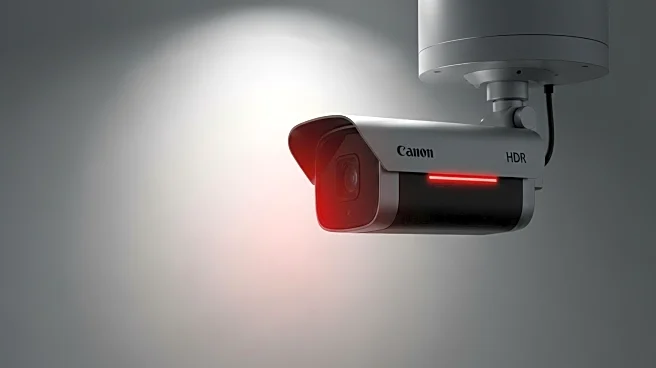What is the story about?
What's Happening?
The Labour Party plans to consult on the use of live facial recognition (LFR) technology before expanding its deployment across England. Sarah Jones, a Home Office minister, announced the consultation at the party's annual conference, emphasizing the need for clear parameters on when and where LFR can be used. The technology has faced criticism for potential racial bias and lack of a legal framework, with campaigners arguing that police have been allowed to self-regulate its use. The Equality and Human Rights Commission has deemed its use unlawful and incompatible with European laws.
Why It's Important?
The consultation on LFR technology is significant as it addresses concerns about privacy, racial bias, and the ethical use of surveillance technology. The outcome could influence public policy and set precedents for the use of similar technologies in law enforcement. If implemented with clear guidelines, LFR could enhance public safety by aiding in the identification of criminals. However, without proper regulation, it risks infringing on civil liberties and disproportionately affecting minority communities. The Labour Party's approach may shape future discussions on balancing security needs with individual rights.
What's Next?
The Labour Party's consultation process will likely involve input from various stakeholders, including civil liberty groups, law enforcement agencies, and technology experts. The feedback gathered will inform the development of a legal framework governing the use of LFR technology. As the consultation progresses, there may be increased public debate on the ethical implications of surveillance technologies. The government will need to address concerns about racial bias and ensure that any deployment of LFR is transparent and accountable. The outcome of this consultation could influence similar discussions in other countries.
Beyond the Headlines
The use of LFR technology raises broader questions about the role of surveillance in society and the potential for technology to exacerbate existing inequalities. As governments and law enforcement agencies increasingly rely on technology for security purposes, there is a need to consider the long-term implications for privacy and civil liberties. The consultation process provides an opportunity to engage in a broader conversation about the ethical use of technology and the importance of safeguarding individual rights in the digital age. The outcome could set important precedents for the responsible use of surveillance technologies worldwide.

















